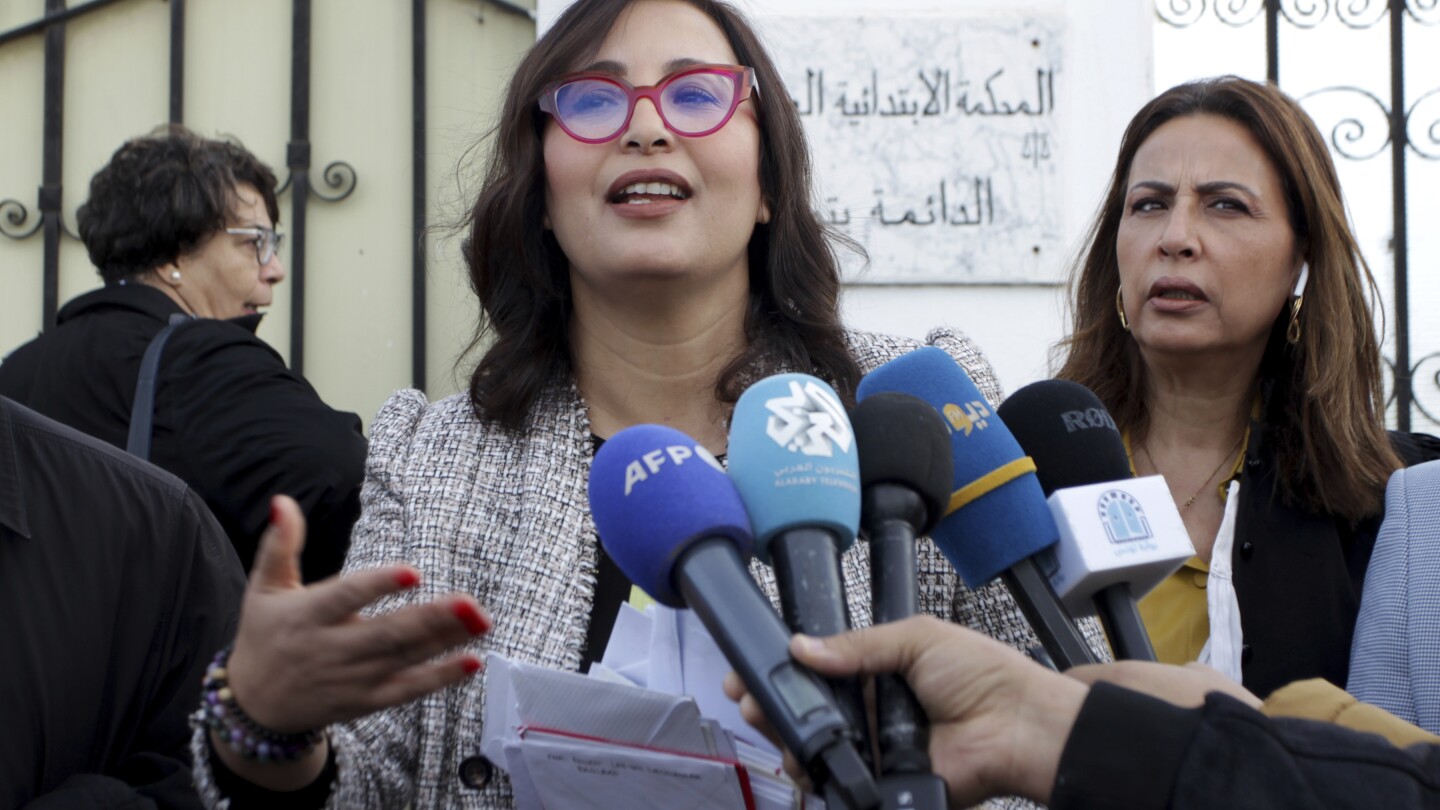TUNIS, Tunisia (AP) — A prominent opposition figure on trial in Tunisia on charges of undermining state security warned Tuesday that efforts to prosecute her are sowing fear about civil rights and liberties.
Chaima Issa, a leader in the coalition of parties opposed to President Kais Saied, spoke to journalists outside a military court despite a gag order. She criticized the charges as politically motivated before walking into the military court hearing.
“People are afraid when they hear those close to power calling us traitors or terrorists, when our purpose is to change things peacefully,” she said.
To government critics, her case encapsulates growing fears about democratic backsliding in Tunisia under Saied.
Prosecutors have accused Issa of “plotting against state security” and jailed her as part of a wave of arrests targeting opposition figures. She faces a potentially lengthy prison sentence.
Critics of the president have increasingly faced prosecution and arrests. More than 20 have been charged in military courts with “plotting against state security.”
Public prosecutors began investigating Issa after she criticized authorities on the country’s most prominent radio station in February. She was charged with spreading fake news and accused of trying to incite the military to disobey orders and undermine public security as part of an alleged plot hatched after she met with foreign diplomats and other opposition figures, her lawyer Samir Dilou said.
After Tuesday’s hearing, Dilou told The Associated Press that he expected a verdict in the evening or on Wednesday. Issa, who was jailed from February to July, remained free while awaiting the verdict.
The lawyer said military tribunals are not the proper venue for charges against civilians like Issa and warned of the implications. “It is imperative to put an end to these political trials, which undermine freedom of opinion and expression,” he said.
Such warnings are taken to heart in Tunisia, which overthrew a repressive regime in 2011 in the first uprising of the region-wide movement that later became known as the Arab Spring.
The nation of 12 million people became a success story after it adopted a new constitution and held democratic elections. But since Saied took office in 2019, he has sacked prime ministers, suspended the country’s parliament and rewritten the constitution to consolidate his power.
A range of activists and political party leaders have been jailed, including Rached Ghannouchi, the leader of the Islamist movement Ennahda.
International rights groups have denounced the military trials. Amnesty International called the proceedings against Issa worrying and urged authorities to immediately drop all charges “and refrain from taking further measures that threaten human rights.”

